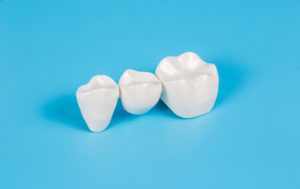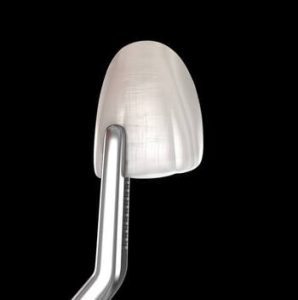Dental veneers are one of the most favourable cosmetic treatments when it comes to achieving a brighter, more confident smile. Whether you’re considering porcelain veneers or composite veneers, many people wonder: Do your teeth rot under veneers? It’s a common concern, and the short answer is no — under normal circumstances, your teeth do not rot under veneers if they are properly cared for and installed correctly by a skilled cosmetic dentist.
Addressing damaged or weakened teeth is important before considering veneers. This ensures that the underlying dental issues are resolved, providing a strong foundation for the veneers.
However, poor dental hygiene, veneer damage, or improper installation can lead to tooth decay beneath the surface. Let’s explore how veneers interact with your natural teeth and what you can do to preserve a healthy, beautiful smile.
What Are Veneers and How Do They Work?
Dental veneers are a thin layer of material placed over the front surface of your teeth to boost their appearance. There are two main types of veneers: porcelain and composite. Porcelain veneers are known for their durability and their ability to closely mimic the natural look of teeth, whereas composite veneers are usually more budget-friendly but may need to be replaced more often.
The veneer application process involves removing a very thin layer of tooth enamel from the front of your teeth to make space for the veneers. Properly preparing the tooth surface is crucial for bonding, as it ensures the veneers adhere effectively and last longer. Once the veneers are bonded to the tooth’s surface, they cover any imperfections and create a beautiful smile that looks natural and bright. But does this mean your natural teeth are at risk?
Do Teeth Rot Under Veneers?

That said, poor dental hygiene can lead to teeth rotting under veneers. If you don’t brush and floss regularly, the space between your veneers and natural teeth can become a breeding ground for disease-causing bacteria. Over time, this can result in tooth decay or gum disease.
Signs and Symptoms of Teeth Rot Under Veneers
Teeth rot under veneers can be a serious issue if left untreated. It’s essential to spot the signs and symptoms to prevent further damage. Here are some common indicators of teeth rot under veneers:
- Sensitivity or Discomfort: Experiencing sensitivity or pain in a tooth, particularly when consuming hot or cold foods or beverages, could suggest an issue with underlying decay.
- Visible Decay or Discolouration: Look for any visible signs of decay or discolouration around the veneer. This can indicate that the natural tooth underneath is deteriorating.
- Cracks or Chips: Cracks or chips in the veneer can expose the underlying tooth to bacteria, leading to decay.
- Loose or Uneven Veneer: If your veneer feels loose or uneven, it might be due to decay weakening the bond between the veneer and the natural tooth.
- Bad Breath or Foul Taste: Ongoing bad breath or a lingering foul taste in your mouth may indicate decay beneath the veneer.
- Swollen or Tender Gums: Swollen or tender gums around the affected tooth can indicate an infection or decay.
If you experience any of these symptoms, it’s crucial to consult your dentist immediately. They will assess the situation and provide the necessary treatment to prevent further damage.
What Causes Tooth Decay Under Veneers?
Several factors may contribute to tooth decay under veneers:
Poor Oral Hygiene
Neglecting proper oral hygiene can result in plaque and tartar accumulating around the gumline and beneath your veneers. Over time, this buildup may cause enamel erosion, decay, and potentially gum disease.
Weakened Teeth
If your teeth are already damaged or weakened, they may be more prone to decay even after veneer application. This is why it’s crucial to ensure your teeth are in good health before getting veneers.
Improper Installation
Poorly fitted veneers can leave gaps between the veneer and the natural tooth. These gaps can trap food particles, leading to tartar buildup and tooth decay.
Bad Diet
A diet that includes high amounts of sugar or acidic items, like citrus fruits, can weaken tooth enamel and increase the likelihood of decay. While the veneers themselves won’t decay, the teeth underneath can weaken.
Neglecting Regular Checkups
Skipping your dental appointments can make it hard to uncover early signs of decay or gum issues. Regular visits to an experienced team of dentists are essential for catching any problems before they worsen.
How to Prevent Tooth Decay Under Veneers
Taking care of your veneers is essential to prevent your teeth from rotting. Here are some simple but effective ways to ensure your veneers last and your natural teeth stay healthy:
Brush Your Teeth Properly
Brushing twice a day is non-negotiable. Using an electric toothbrush is recommended, as it can effectively clean those difficult-to-reach areas around your veneers. Make sure to use fluoride toothpaste, which strengthens your enamel and helps protect against decay.
Floss Daily
Flossing is essential for removing food particles and preventing plaque from forming between your teeth and veneers. Take care to be gentle around the edges of your veneers to prevent them from becoming loose or dislodged.
Use Antiseptic Mouthwash
An antiseptic mouthwash kills disease-causing bacteria and reduces the risk of decay. It’s an excellent step to add to your daily dental routine, especially if you’re prone to gum disease.
Attend Regular Checkups
Schedule regular visits to your cosmetic dentist for professional cleanings and checkups. Your dentist will track the condition of your veneers and natural teeth and address any concerns before they escalate.
Avoid Foods That Can Harm Your Veneers
Limit your intake of acidic foods and drinks, such as citrus fruits and sugary snacks, which can weaken your enamel. Drinking water after consuming these foods helps reduce their effects.
Consider Dental Hygiene Products
Use whitening ingredients carefully. Some toothpaste and mouthwashes contain abrasive elements that can damage the surface of veneers. Always consult your dentist before using new products.
What Happens if Teeth Decay Under Veneers?

- Damaged Veneers: Veneers may become loose or even fall off if the tooth underneath begins to decay. Temporary veneers may be applied while your dentist addresses the underlying issue.
- Root Canal Treatment: In severe cases, tooth decay under veneers can reach the tooth’s pulp, necessitating a root canal or even tooth extraction.
- Dental Implants: If the decay becomes too advanced, you may need to have the tooth replaced with dental implants, which can be a more invasive and costly procedure.
Can Veneers Prevent Tooth Decay?
In essence, veneers cover the visible part of your tooth, offering some protection. However, they do not make your teeth immune to decay. Veneers protect the tooth’s surface, but the natural tooth underneath is still vulnerable to decay if not properly maintained.
Along with looking after your veneers, it’s equally important to preserve the health of your natural teeth. Good oral hygiene habits, regular dental checkups, and avoiding bad teeth habits are the keys to preventing decay and maintaining your dream smile.
Common Myths About Veneers and Tooth Decay
Myth: Veneers make your teeth rot.
Fact: Veneers do not cause your teeth to rot. With adequate care, your teeth will stay healthy beneath the veneers.
Myth: Veneers can fix any dental problem.
Fact: Veneers are a cosmetic solution, not a treatment for decayed or damaged teeth. If your teeth are severely decayed or weakened, you may need to consider other treatments, like crowns or dental implants.
Myth: Veneers are permanent.
Fact: While porcelain and composite veneers are durable, they are not permanent. Over time, you may need to replace them, especially if the teeth underneath decay or weaken.
Are Veneers Right for You?
If you have broken or discoloured teeth or want to enhance your smile, veneers may be a suitable option. However, it’s crucial to assess your overall oral health first. If you have existing dental problems like decayed teeth or gum disease, those issues should be addressed before proceeding with veneers.
A good cosmetic dentist will carefully examine your teeth, ensuring they are healthy enough for the veneer application. They will also discuss maintaining your veneers and protecting your natural teeth from decay.
Conclusion: Can Teeth Rot Under Veneers?

If you have any concerns about your veneers or think your teeth are rotting, it’s important to see your dentist for an evaluation. By addressing any potential issues early, you can protect your natural teeth, maintain your beautiful smile, and enjoy the benefits of veneers for many years to come.
For more information or to schedule a consultation, contact Infinity Dental Care at (02) 9159 6237.
References:
Mayo Clinic. (n.d.). Cavities. Mayo Clinic. https://www.mayoclinic.org/diseases-conditions/cavities/symptoms-causes/syc-20352892
Cleveland Clinic. (n.d.). Dental veneers. Cleveland Clinic. https://my.clevelandclinic.org/health/treatments/23522-dental-veneers
Johnson & Johnson. (n.d.). 9 tips to boost your oral hygiene routine. https://www.jnj.com/health-and-wellness/9-tips-to-boost-your-oral-hygiene-routine
MedlinePlus. (n.d.). Plaque and tartar. MedlinePlus. https://medlineplus.gov/ency/article/002044.htm#:~:text=Plaque%20is%20a%20sticky%20film,turn%20into%20tartar%20(calculus).
Healthline. (n.d.). Acid foods to avoid. Healthline. https://www.healthline.com/health/acid-foods-to-avoid%23prevention

